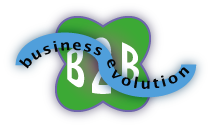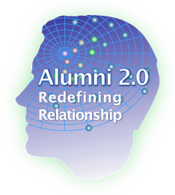WSJ Take on Google Plus Epitomizes Market Myopia and Opportunity reveals how conventional wisdom misunderstands Google+ and how to take advantage of the situation.

Most people have the whole “web 2.0 thing” sorted out by now. They have accounts in LinkedIn for business, Facebook for personal and Twitter for I-don’t-really-know-but-I’m-on-it. They also know that Google “doesn’t get social” as the search behemoth has littered carcasses of failed ventures around the web.
Alas, as I have argued here and in conference presentations since Google+ launched, this misunderstanding is completely understandable—and wrong. Most interesting here, it elevates opportunities and threats for market participants.
[…]
 Google Plus Disruptive Potential Reflected by Conference Audiences summarizes insights from audience reactions to Google+ presentations. CSRA launched the Executive’s Guide to Google+ because we thought it had significant disruptive potential for many of our clients, and our recent conference appearances (link to presentation below) have only underlined two of Google+’s unique attractions: your competitors don’t understand it and Google is managing it as a completely different animal, not a social network. Here I’ll share audience reactions to my recent Google+ presentations at public social business conferences and private corporate meetings. Google Plus Disruptive Potential Reflected by Conference Audiences summarizes insights from audience reactions to Google+ presentations. CSRA launched the Executive’s Guide to Google+ because we thought it had significant disruptive potential for many of our clients, and our recent conference appearances (link to presentation below) have only underlined two of Google+’s unique attractions: your competitors don’t understand it and Google is managing it as a completely different animal, not a social network. Here I’ll share audience reactions to my recent Google+ presentations at public social business conferences and private corporate meetings.
[…]
 Silicon Valley Watcher offers up a useful riff on disruptive potential of Google+ – but it nonetheless has glaring holes and reflects arbitrary assumptions. I recommend reading it to learn about this argument, which is based on this questionable logic: “social data degrades the ‘quality’ of search results.” Silicon Valley Watcher offers up a useful riff on disruptive potential of Google+ – but it nonetheless has glaring holes and reflects arbitrary assumptions. I recommend reading it to learn about this argument, which is based on this questionable logic: “social data degrades the ‘quality’ of search results.”
The real answer is far less satisfying, “It depends.” Some search results will be improved with social data while others won’t. Search, SEO/SEM and other players dislike Google+ when it disrupts their businesses. Expect, and listen to, these arguments, but realize that they are often biased.
Global social business strategy explains how robust stakeholder and workstream research created global opportunities for a global NGO.
 CSRA just completed a global study of social business in ten OECD language markets that may bode well for commercial and nonprofit organizations that are considering global audiences. We found that when you ground your social business strategy on rigorous research into the people you want to engage (stakeholders) and their specific online activities (workstreams), social business strategy can be applicable in several language markets simultaneously, leading to significant leverage and supporting global go-to-market initiatives. Having personally worked and lived in several language markets, I was surprised by the strong stakeholder/workstream patterns; I had assumed that the markets would differ from each other far more. Here I’ll offer my reflections on the research as well as recommendations for using social networks for global initiatives. CSRA just completed a global study of social business in ten OECD language markets that may bode well for commercial and nonprofit organizations that are considering global audiences. We found that when you ground your social business strategy on rigorous research into the people you want to engage (stakeholders) and their specific online activities (workstreams), social business strategy can be applicable in several language markets simultaneously, leading to significant leverage and supporting global go-to-market initiatives. Having personally worked and lived in several language markets, I was surprised by the strong stakeholder/workstream patterns; I had assumed that the markets would differ from each other far more. Here I’ll offer my reflections on the research as well as recommendations for using social networks for global initiatives.
[…]
Many employment or career-related discussions contain a feeling of gloom and doom, but I have noticed a paradoxical market development: that the unpredictable and volatile economy that affects all businesses and careers is actually driving more demand for expertise, but the demand doesn’t look the same to companies or workers. Here I’ll explain how this works, but even more important, I’ll give you some practical tips on using the market to your advantage (featuring social technologies).
[…]
B2B Customers Getting Social Fast: How Marketing and Sales Can Evolve explains how clients/customers are smarter and want a new kind of relationship | The new economics of business reputation
 While preparing to launch Social Business Services for B2B Sales in January 2012, I have been engaged in its Ecosystem Audit. I have plumbed online conversations about B2B Sales and Marketing adoption of social business (erstwhile social media). I have been struck by a recurring realization: a large part of Marketing and Sales as we know them is significantly out of alignment with B2B customers. Social business is permeating customer networks throughout the economy and changing customer behavior and expectations. This has created a rare opportunity for B2B marketing and sales people who understand and respond ahead of the market. If I’m right, this could be one of the most important posts you read this year. While preparing to launch Social Business Services for B2B Sales in January 2012, I have been engaged in its Ecosystem Audit. I have plumbed online conversations about B2B Sales and Marketing adoption of social business (erstwhile social media). I have been struck by a recurring realization: a large part of Marketing and Sales as we know them is significantly out of alignment with B2B customers. Social business is permeating customer networks throughout the economy and changing customer behavior and expectations. This has created a rare opportunity for B2B marketing and sales people who understand and respond ahead of the market. If I’m right, this could be one of the most important posts you read this year.
Two quick examples of misalignment: one of Marketing’s underlying assumptions is that it is not economically feasible to have large-scale one-on-one customer conversations, so marketing must […]
 Social Business: How Firm Size Affects Strategy and Execution outlines differences firm size presents in social business initiatives. I recently participated in a discussion in which we debated how size of brand or firm should affect social business strategy, so I’ll dive deeper into the issues here because they are an excellent opportunity to show how strategy and execution are connected and how they differ. I’ll compare how startups and enterprises approach four areas of executing a social business initiative: team, collaboration, learning and scaling. Social Business: How Firm Size Affects Strategy and Execution outlines differences firm size presents in social business initiatives. I recently participated in a discussion in which we debated how size of brand or firm should affect social business strategy, so I’ll dive deeper into the issues here because they are an excellent opportunity to show how strategy and execution are connected and how they differ. I’ll compare how startups and enterprises approach four areas of executing a social business initiative: team, collaboration, learning and scaling.
[…]
Using Social Networks for Recruiting and Sales shows how firms can increase quality of recruits and sales leads while cutting costs.
 Social networks can help organizations, whether commercial, nonprofit or government, to significantly improve their efficiency in business processes like recruiting, sales and service. This is what we call “Enterprise Process Innovation” because, by using social networks to create and nurture relationships with alumni, your employees can diminish the time required to accomplish tasks within these processes. It’s well known that most alumni, former employees, move to firms that are related to your business (adjacent in the value chain) or complementary in some way. Yes, some move to competitors, but they are usually in the minority. Social networks, by significantly reducing the cost of having relevant, quality conversations, make robust employee-alumni networks actionable as never before. Social networks can help organizations, whether commercial, nonprofit or government, to significantly improve their efficiency in business processes like recruiting, sales and service. This is what we call “Enterprise Process Innovation” because, by using social networks to create and nurture relationships with alumni, your employees can diminish the time required to accomplish tasks within these processes. It’s well known that most alumni, former employees, move to firms that are related to your business (adjacent in the value chain) or complementary in some way. Yes, some move to competitors, but they are usually in the minority. Social networks, by significantly reducing the cost of having relevant, quality conversations, make robust employee-alumni networks actionable as never before.
All organizations (I’ll use “firm” to denote for profit, government and nonprofit) have business processes that benefit from relevant insight and introductions from other people: insight about the situation of the prospect, where the best sources of new […]
Why Google Plus Should Be on Executives’ Radar explains Google’s new social network and why it commands attention; it changes the context of social networks.

The launch of Google’s new social network has poignant significance for executives—in predictable and surprising ways. Google+ is exceptionally significant because it is an exciting new social venue with the potential to disrupt, but even more important, it can teach us about how the ecosystem works and how organizations can learn to use it to garner support for things they care about. Here I’ll outline my first impressions and give general guidance for executives to take advantage of Google+’s potential.
[…]
Situational Monopoly Is a 21st Century Profit Maker—Debunking Strategy Sacred Cows
 Since the 1990s, I have advised clients in many industries on using disruptive technology to change the rules, and one of the themes that has constantly recurred is companies’ decreasing ability to maintain high profits from product businesses. Products are not as profitable as they used to be. In the Industrial Economy, product life cycles were long because communication was infrequent and poor compared to today, which prolonged ignorance and novelty and product life cycles. It took years for fashions to cross the Atlantic, through the 1980s. Now fashions emerge simultaneously no matter where they originate. Today, novelty is consumed with alacrity, erasing differentiation and price premiums. Since the 1990s, I have advised clients in many industries on using disruptive technology to change the rules, and one of the themes that has constantly recurred is companies’ decreasing ability to maintain high profits from product businesses. Products are not as profitable as they used to be. In the Industrial Economy, product life cycles were long because communication was infrequent and poor compared to today, which prolonged ignorance and novelty and product life cycles. It took years for fashions to cross the Atlantic, through the 1980s. Now fashions emerge simultaneously no matter where they originate. Today, novelty is consumed with alacrity, erasing differentiation and price premiums.
To reference one statistic, in 2011 two billion people access the Internet, one third of the global population. They have access to infinite amounts of information and relationships. They share information about using products and services to create value in terms of their situations, and other people find them and interact. When people interact, they make each other smarter, fast. They expose product […]
|
|


 Silicon Valley Watcher offers up a useful riff on disruptive potential of Google+ – but it nonetheless has glaring holes and reflects arbitrary assumptions. I recommend reading it to learn about this argument, which is based on this questionable logic: “social data degrades the ‘quality’ of search results.”
Silicon Valley Watcher offers up a useful riff on disruptive potential of Google+ – but it nonetheless has glaring holes and reflects arbitrary assumptions. I recommend reading it to learn about this argument, which is based on this questionable logic: “social data degrades the ‘quality’ of search results.” CSRA just completed a global study of social business in ten OECD language markets that may bode well for commercial and nonprofit organizations that are considering global audiences. We found that when you ground your social business strategy on rigorous research into the people you want to engage (stakeholders) and their specific online activities (workstreams), social business strategy can be applicable in several language markets simultaneously, leading to significant leverage and supporting global go-to-market initiatives. Having personally worked and lived in several language markets, I was surprised by the strong stakeholder/workstream patterns; I had assumed that the markets would differ from each other far more. Here I’ll offer my reflections on the research as well as recommendations for using social networks for global initiatives.
CSRA just completed a global study of social business in ten OECD language markets that may bode well for commercial and nonprofit organizations that are considering global audiences. We found that when you ground your social business strategy on rigorous research into the people you want to engage (stakeholders) and their specific online activities (workstreams), social business strategy can be applicable in several language markets simultaneously, leading to significant leverage and supporting global go-to-market initiatives. Having personally worked and lived in several language markets, I was surprised by the strong stakeholder/workstream patterns; I had assumed that the markets would differ from each other far more. Here I’ll offer my reflections on the research as well as recommendations for using social networks for global initiatives. While preparing to launch Social Business Services for B2B Sales in January 2012, I have been engaged in its Ecosystem Audit. I have plumbed online conversations about B2B Sales and Marketing adoption of social business (erstwhile social media). I have been struck by a recurring realization: a large part of Marketing and Sales as we know them is significantly out of alignment with B2B customers. Social business is permeating customer networks throughout the economy and changing customer behavior and expectations. This has created a rare opportunity for B2B marketing and sales people who understand and respond ahead of the market. If I’m right, this could be one of the most important posts you read this year.
While preparing to launch Social Business Services for B2B Sales in January 2012, I have been engaged in its Ecosystem Audit. I have plumbed online conversations about B2B Sales and Marketing adoption of social business (erstwhile social media). I have been struck by a recurring realization: a large part of Marketing and Sales as we know them is significantly out of alignment with B2B customers. Social business is permeating customer networks throughout the economy and changing customer behavior and expectations. This has created a rare opportunity for B2B marketing and sales people who understand and respond ahead of the market. If I’m right, this could be one of the most important posts you read this year. Social Business: How Firm Size Affects Strategy and Execution outlines differences firm size presents in social business initiatives. I recently participated in a discussion in which we debated how size of brand or firm should affect social business strategy, so I’ll dive deeper into the issues here because they are an excellent opportunity to show how strategy and execution are connected and how they differ. I’ll compare how startups and enterprises approach four areas of executing a social business initiative: team, collaboration, learning and scaling.
Social Business: How Firm Size Affects Strategy and Execution outlines differences firm size presents in social business initiatives. I recently participated in a discussion in which we debated how size of brand or firm should affect social business strategy, so I’ll dive deeper into the issues here because they are an excellent opportunity to show how strategy and execution are connected and how they differ. I’ll compare how startups and enterprises approach four areas of executing a social business initiative: team, collaboration, learning and scaling. Social networks can help organizations, whether commercial, nonprofit or government, to significantly improve their efficiency in business processes like recruiting, sales and service. This is what we call “Enterprise Process Innovation” because, by using social networks to create and nurture relationships with alumni, your employees can diminish the time required to accomplish tasks within these processes. It’s well known that most alumni, former employees, move to firms that are related to your business (adjacent in the value chain) or complementary in some way. Yes, some move to competitors, but they are usually in the minority. Social networks, by significantly reducing the cost of having relevant, quality conversations, make robust employee-alumni networks actionable as never before.
Social networks can help organizations, whether commercial, nonprofit or government, to significantly improve their efficiency in business processes like recruiting, sales and service. This is what we call “Enterprise Process Innovation” because, by using social networks to create and nurture relationships with alumni, your employees can diminish the time required to accomplish tasks within these processes. It’s well known that most alumni, former employees, move to firms that are related to your business (adjacent in the value chain) or complementary in some way. Yes, some move to competitors, but they are usually in the minority. Social networks, by significantly reducing the cost of having relevant, quality conversations, make robust employee-alumni networks actionable as never before. Since the 1990s, I have advised clients in many industries on using disruptive technology to change the rules, and one of the themes that has constantly recurred is companies’ decreasing ability to maintain high profits from product businesses. Products are not as profitable as they used to be. In the Industrial Economy, product life cycles were long because communication was infrequent and poor compared to today, which prolonged ignorance and novelty and product life cycles. It took years for fashions to cross the Atlantic, through the 1980s. Now fashions emerge simultaneously no matter where they originate. Today, novelty is consumed with alacrity, erasing differentiation and price premiums.
Since the 1990s, I have advised clients in many industries on using disruptive technology to change the rules, and one of the themes that has constantly recurred is companies’ decreasing ability to maintain high profits from product businesses. Products are not as profitable as they used to be. In the Industrial Economy, product life cycles were long because communication was infrequent and poor compared to today, which prolonged ignorance and novelty and product life cycles. It took years for fashions to cross the Atlantic, through the 1980s. Now fashions emerge simultaneously no matter where they originate. Today, novelty is consumed with alacrity, erasing differentiation and price premiums.